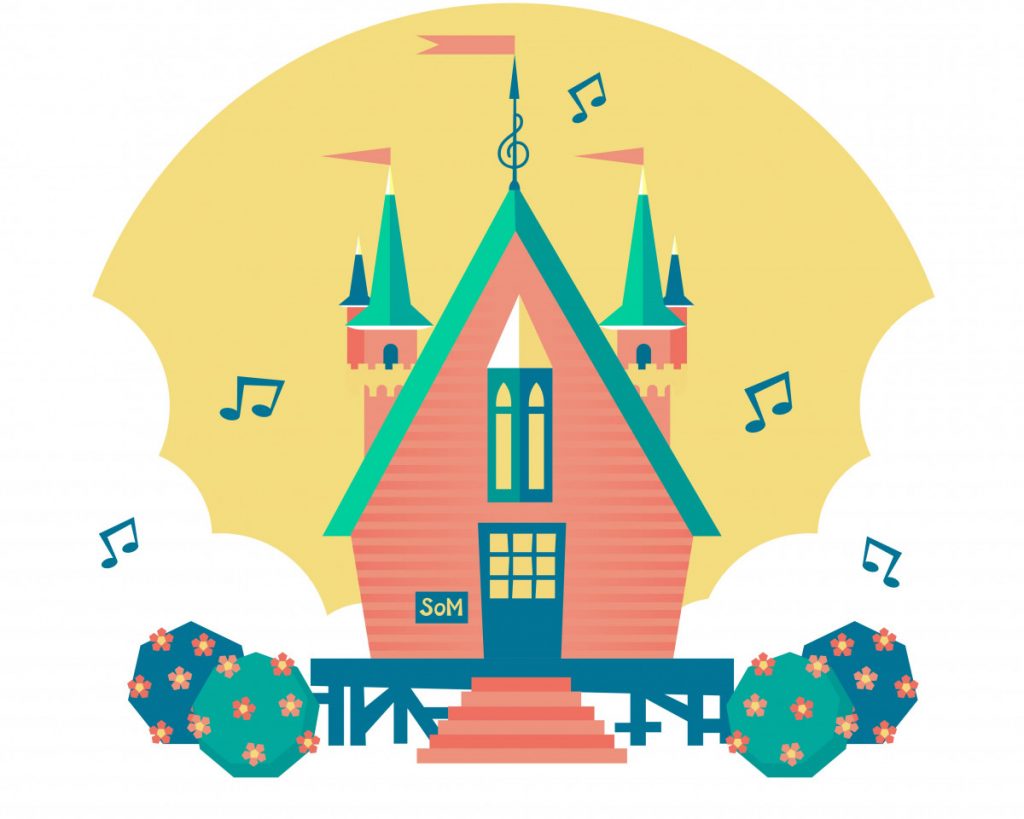
For the final instrumental recital of the season, Ellé Crowhurst is attempting to complete a jigsaw puzzle in under 10 minutes.
Crowhurst will play the first three movements of “Sonatine” by Zenobia Powell Perry. Alone, Perry’s tonal shifts may sound out of place, unjustifiably incomplete. The hard part then, Crowhurst said, is putting the pieces together.
“In the musical aspects of the piece itself, Zenobia wrote in tonal contexts,” Crowhurst said. “She always tried to stay in that realm, which was different from her colleagues at the time in the ’50s and ’60s. It’s all placed unexpectedly, but comes together in the end.”
I think it’s important to discover new repertoire during this time when we are trying to address the lack of diversity that is in our society at large, which includes the fine arts where we stick to our same favorite composers,” Crowhurst said. “I was excited to find a piece that was representing a different side of music.”
Crowhurst, a clarinetist from Indiana University’s Jacobs School of Music, will take the virtual stage with five other students from the Chautauqua School of Music Instrumental Program at 7 p.m. EDT Thursday, Aug. 6, on the CHQ Assembly Virtual Porch. Joining her is violist Alexis Mitrushi, cellist Carl Eckert, and violinists Olivia Taylor, Masayoshi Arakawa and Emma Reader-Lee.
Perry’s colleagues, Crowhurst said, were homogeneous: white men from Western European traditions. Perry, however, was not only a female composer, but a composer of African-American and Creek Indian descent, bringing a “diverse and cultural” perspective to an otherwise analogous industry.
“I think it’s important to discover new repertoire during this time when we are trying to address the lack of diversity that is in our society at large, which includes the fine arts where we stick to our same favorite composers,” she said. “I was excited to find a piece that was representing a different side of music.”
Listening for the “vocal influences” amid the tonality will guide the audience in understanding the piece, she said.
“It is incredibly virtuosic,” Crowhurst said. “Sometimes it becomes a bit thinner in texture or is merely centripetal instead of forming a formal melody and accompaniment. You have to pay close attention.”
Karl Eckert, a student from Vanderbilt University, will play the first movement of Sergei Prokofiev’s “Sinfonia Concertante” in E minor, Op. 125. The 40-minute movement is a large-scale work initially composed for cello and orchestra. Prokofiev dedicated the composition to Russian cellist Mstislav Rostropovich, who premiered it in 1952.
“It’s really high in register for the cello, which is on par for all Prokofiev’s compositions,” Eckert said. “He was always pushing the envelope, especially in terms of range.”
Before writing “Sinfonia Concertante,” Op. 125, Prokofiev wrote Cello Concerto, Op. 58, which was considered to be a “soulless” concerto. That composition renewed Prokofiev’s interest in mastering the cello and he rewrote the concerto into the current Op. 125.
“Prokofiev turned it into a free-flowing, cadenza-like piece in the end, which means you have to build your own character when you perform something of his — he didn’t just hand it to you,” he said.
Emma Reader-Lee, a student from the University of Ottawa, will perform the first movement of Robert Schumann’s 1851 Violin Sonata No. 1 in A minor, Op. 105. The movement, “Mit leidenschaftlichem Ausdruck,” meaning “with passionate expression,” is a “beautiful, but haunting conveyance.”
“It’s quite an emotional event,” Reader-Lee said. “It starts minor, in a sad and restless sense and then it jumps back and forth into major. The melodies are beautiful because of that variety.”
Instead of explosive notes, the movement is filled with passionate tones, sporadically relieved by moments of “lighthearted delicacy.” Reader-Lee said there are also drastic fluctuations in the tempo, something the performer must anticipate ahead of time. In that, the selection takes a lot of preparation, a luxury she didn’t have. “It’s actually quite new,” Reader-Lee said, as she had her first lesson for the piece in the first week of April.
“It’s gratifying to be able to play a new piece and get it to performance level in this brand new platform,” she said. “Putting my all into this helped me push past what I thought would be limitations. Turns out, they weren’t limiting at all.”




